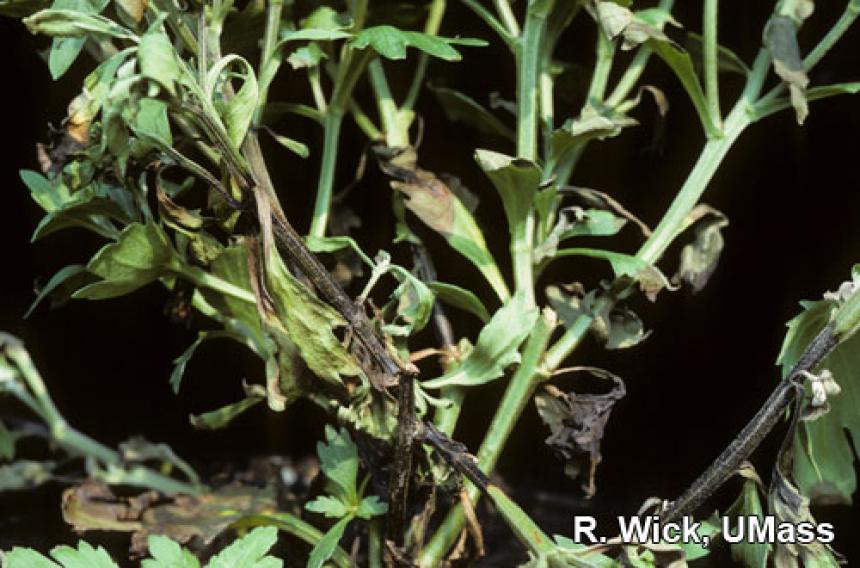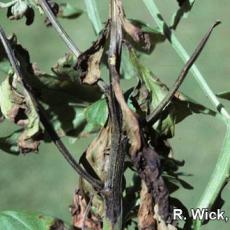Bacterial soft rot of is caused by Erwinia carotovora. This bacterium can survive both in non-susceptible host plants, in water, and in the rhizosphere. As environmental conditions become favorable for bacterial growth, the bacteria multiply and cause disease. Spread of bacterial diseases is most often the result of human activity-pruning and propagation procedures, movement of soil and plant debris by machinery or on feet, overhead irrigation, and the application of insecticides and fungicides under pressure. Management of E. carotovora involves the use of sanitation, chemicals, disease free propagative materials, and the manipulation of humidity and temperature. Good disease control requires a combination of these measures. Discard all rotted plant material. Plant in well-drained soils. Avoid wounding plants during the growing season and during the harvest. Keep all production areas clean. Good cultural practices include proper fertilization, plant spacing to maximize air circulation, and avoiding overhead irrigation. Copper fungicides such as Champ, Kocide, Tenn-Cop5E, and Basicop are registered for disease management, but are often ineffective without sound cultural practices. Maneb (Manzate 75 DF) mixed with copper is more effective than copper alone; ManKocide is a combination product containing copper and mancozeb.


